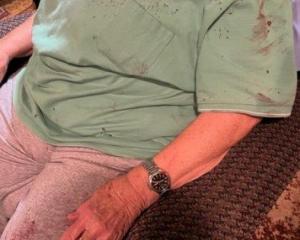
Matthew Luke Hodder, 33, was yesterday jailed for four years and two months after pleading guilty to attempting to take possession of the class-A drug for the purpose of supply.
In the High Court at Dunedin, Justice Jonathan Eaton said had the plan been successful, Hodder would have been looking at a sentence start point of at least 25 years.
"The harm such an importation would’ve had on the community is immense," he said.
The judge said Hodder "excelled" in the stripping profession but the late-night lifestyle led him almost inevitably to drug use.
The defendant went by the names "Matty Thunder" and "DIY Dave" during his time as an exotic performer and his online agency described him as "an experienced model and male entertainer ... willing to give anything a shot".
It was not revealed exactly how he became entwined with an international criminal syndicate dealing in serious drug trafficking but counsel Phil Hamlin conceded it was money-driven.
The court heard Hodder’s roofing business had gone under during the Covid-19 crisis and he had turned to alcohol and cocaine to cope.
"He was in a mess and was involved, no doubt, for financial matters and to get himself out of the problems he had in Australia," he said.
On August 3, 2022, a 254m container ship, Spirit of Auckland, was transiting through Philadelphia when authorities seized two duffel bags containing 91kg of cocaine from an intake grate under the vessel.
Because the GPS trackers were water damaged, traffickers were unaware the drugs had been confiscated and the ship docked in Melbourne four weeks later.
Hodder and his co-defendant — who pleaded not guilty and has name suppression — tested equipment, including an underwater scooter, and carried out reconnaissance on Spirit of Auckland.
But the pair abandoned their plans when they were spotted by Australian authorities.
On September 13, the men flew from Melbourne to Queenstown, sitting separately, and hired a red Toyota Highlander which they drove to Dunedin.
After renting a motel, Hodder spent $4000 on dive equipment including a wetsuit, pressure gauges, a torch, dive bag and snorkel.

On September 16, the men drove to Careys Bay to scope out the shipping berth and when they returned to their hotel for the night, police bugged their car.
At 3.13am the next day, the men returned to claim the $27m cache.
As Spirit of Auckland entered the shipping channel, the co-defendant drove alongside it, communicating its position by radio to Hodder who hid under a dock in Port Otago’s restricted area.
As police looked on, Hodder made numerous dives along the starboard side of the vessel and when he was unable to locate the bags, he came ashore.
After hurried conversations with people overseas involved in the plot, the defendants were sent a video of where the drugs were stashed.
They discussed a second dive but because of a lack of air in the tanks, decided to return to the city for breakfast.
When they parked their vehicle, police swooped, seizing four cellphones, a laptop and $2539 cash.
Hodder said he had originally believed his role only extended to swimming to a catamaran and when he discovered the extent of the job he had sought a way out.
He said he was subjected to threats by those above him in the chain.
In an interview in custody before sentencing, the defendant stressed his remorse and said: "I’ve never felt so free in my whole life."
Mr Hamlin said Hodder was keen to complete his sentence and get home.
"His arrest in New Zealand has brought him around to recognise the error of his ways and he wants to set himself on a different path," he said.
"He wants to get back to Australia to make a better life for himself."











